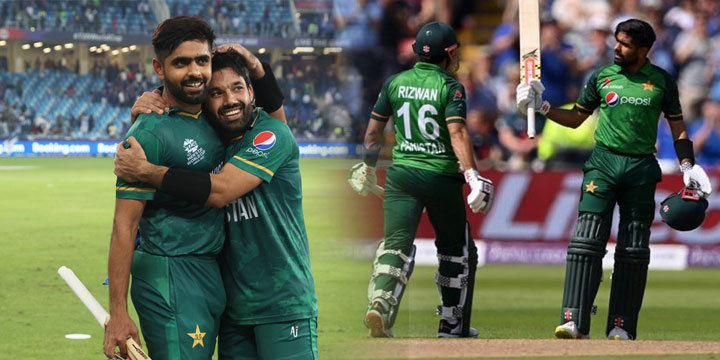By: Wajeeha Bilal
Many thinkers and political figures since the ancient world have formed different ideas about the goals that politics can achieve. From moralists (who believe that political life is a branch of ethics or moral philosophy) to realists (who focus on power, conflict, and war), political life is definitely a necessary response to the challenges of everyday life and the realization that collective action is better than individual action. Making sense of human life from ancient times to the Middle Ages, and the present time requires an understanding of the variety of political ideas and achievements established throughout history.
It is generally acknowledged in the West that Magna Carta also called the Great Charter, written by a group of thirteenth-century barons to protect their rights and property against a despotic rule, was the first-ever proclamation of rights in which all parties were entitled to social, administrative, and religious rights. Universally considered as the first document to establish a tradition of civil rights, it is the basis of most constitutions of modern nation-states. However, analyzing history, the first person who actualized the formation of a constitution for a multireligious and diverse community is The Holy Prophet Muhammad(pbuh). The fact is that the Constitution of Madinah antecedes Magna Carter. The prophet of the Islamic faith, Hz. Muhammad ﷺ laid the foundation for an Islamic state. He was its political and military leader as much as its spiritual guide. After Hijra to Yathrib in 622, he continued to spread his message and ultimately organized the city into a unified Islamic city-state. The city was renamed Medina (city of the prophet) and it became the world’s first Islamic state with a constitution that formed the basis of an Islamic political tradition. The constitution addressed the rights and duties of every group within the community, the rule of law, and the issue of war. The key aims were peace within the Islamic state and the construction of a political structure that would strengthen Islam. The constitution helped ensure agreement among different communities securing their lives and properties. This was the first treaty in history defining how a diverse community was to function. It helped commute mutual trust for all parties holding them to the terms and conditions of the agreement. Though the guidelines had been laid down many centuries back, they still stand true for diverse communities and their governments.
Since the establishment of the current government in our country, there has been a continuous stress on ruling through the doctrine of Riyasat-e-Madinah. Being an independent country, that was established on the Islamic identity, while giving rights to multi-religious and ethnic communities, Pakistan’s dream was formed on the principles of that great charter, not just in writing, but also in spirit. The concept of Riyasat-e-Madina was embodied in a lawful state of Madina which was created by the Holy Prophet Muhammad ﷺ where all human beings were equal with the basic rights of living a peaceful life. Where no one had any superiority, and everyone was treated equal according to the law. While the Islamic state of Madina was successfully able to govern itself on the Islamic principles, our country since its creation has been struggling to do that. What the leaders of struggling states fail to understand is that it is the leadership that sets an absolute example of a lawful state not vice versa. Corrupted power is the cause of poverty, oppression, and injustices. “We have guided missiles and misguided men.” Martin Luther King Jr.
All the leaders who cite examples of great states like Medina should focus on their leadership qualities before having a perfect state to run. Instead of having debates over the corruption of others and how imperfect the previous governments were, the present leaders need to focus more on their own characters. Before establishing the perfect Islamic state, The Greatest Islamic Leader witnessed a very miserable society of Arabs. The Prophet ﷺ embodied the true essence of greatest leadership, through which he revolutionized the uncivilized lives of Arabs and gave them a lawful purpose to live by. As new potentials arise for the execution of power, control and credibility, new political ideas and theories come to be formed. “Politics is too serious a matter to be left to the politicians”- Charles de Gaulle. Witnessing corrupt and unjust leaderships through media, the present Politics concerns all of us, so we try our best to understand and find ways to address the issues and spread a positive message.
Great leadership qualities have strong connections in Islamic tradition, they are also universal in spirit, making them fitting to any leader, of every religion and ethnicity. Though Muslims believe that there can be no one as pure a leader as the Holy Prophet ﷺ but there can definitely be great leaders who follow his footsteps and lead with honesty and truthfulness. Prophet Muhammad ﷺ had a very strong and virtuous character with a perpetual display of honesty and truthfulness in his negotiations. His integrity played a vital role while forming the treaty of Hudaibiyyah, when his followers felt disappointed with in the short term, but later witnessed the rise of Islam in the long term. The Companions of the Holy Prophet tried to follow his footsteps in handling the matters of the state. Great states and governments are built through men with great characters and qualities. “The best of you are the best in character.”
The present corrupted and unjust society is in a dire need of truthful leaders who follow Sunnah, in politics instilled with ethics and morality. Leading by Example was an integral characteristic of The Prophet’s personality, as he acted upon the enforced Islamic teachings himself and lead by example to be remembered forever. Muslims around the world celebrate the birth (the Mawlid al-Nabawi) of the greatest leader in the history of mankind, on the 12th Rabi-ul-Awwal, with religious devotion and solemnity. The influential quality of Hazrat Muhammad ﷺ is still prominent in both spiritual and social issues of life. Spreading of Islam throughout the world was made possible by His meaningful and effective Sunnah. When considering the greatest leader of all times, the name of the Prophet Muhammad ﷺ comes on top, not just for Muslims, but also for other honorable researchers and historians such as Michael Hart, who named Prophet Muhammad as number one in his compilation of the hundred greatest leaders in history. Michael Hart in “The 100, A Ranking of the Most Influential Persons in the History”, claimed, “My choice of Muhammad (PBUH) to lead the list of world’s most influential persons… he was the only man in the history who was supremely successful on both the secular and religious level… It is this unparalleled combination of the secular and religious influence which I feel entitles Muhammad (PBUH) to be considered the most influential single figure in human history.”
The writer is the author of “The Conscious Ego”, “The Beautiful Present”. She can be reached at [email protected] and she tweets at @WajehaBilal








